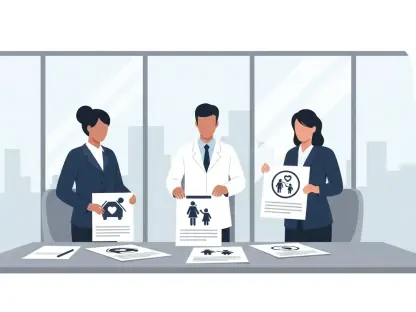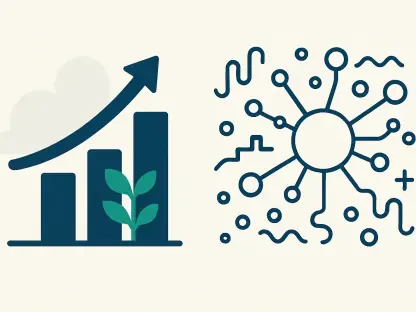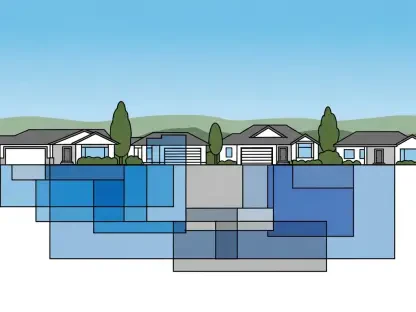In a significant legislative effort, Louisiana is tackling its reputation for having the highest car insurance premiums in the United States. State lawmakers have introduced a series of reforms through several bills with the primary goal of reducing these premiums. Among these measures are changes aimed at curbing excessive litigation costs and introducing stricter legal protocols. Such initiatives address key issues like limiting claims for damages by unauthorized immigrants and reforming how evidence and medical expenses are managed in auto accidents. These legislative actions stand as a testament to the state’s commitment to enhancing fairness in insurance and legal practices, providing much-needed relief for residents burdened by soaring premiums.
Exploring New Legal Parameters
Restricting Unnecessary Litigation
One of the cornerstone efforts in Louisiana’s legislative overhaul is House Bill 436. This particular bill aims to limit the legal claims for damages by unauthorized immigrants involved in vehicle accidents. The initiative highlights a broader effort to manage unnecessary litigation costs, which are often reflected in the towering insurance premiums that residents are forced to shoulder. By setting restrictions on who can file claims, the state hopes to reduce the number of frivolous lawsuits that not only overload the legal system but also drive up costs for policyholders. This approach acknowledges the fine balance between maintaining access to legal recourse for legitimate claimants and safeguarding insurance buyers from unjustified financial pressures.
Furthermore, House Bill 34 introduces the ability for parties in auto accident lawsuits to produce evidence on medical expenses. This development allows judges or juries to determine the recoverable amounts they see as reasonable. By placing a legal spotlight on what is deemed reasonable compensation, the bill seeks to provide a more equitable system for all parties involved, encouraging justifiable and fair settlements in court proceedings. This legal revision is seen as a crucial step toward transparency and accountability in accident-related claims, ensuring that compensation aligns with actual medical costs without undue inflation.
Establishing Damages Caps and Other Limits
Another significant proposal under consideration is House Bill 435, which endeavors to introduce a cap on general damages in civil lawsuits, setting the limit at $5 million. This proposed cap is directed at fostering consistency and moderation in compensation awarded during legal proceedings, evident from recent high-profile settlements such as the $411 million deal in Baton Rouge. With such parameters, the legislature aims to establish a precedent for fair compensation, reducing unpredictability which can lead to inflated premiums. The cap reflects a substantial shift toward stabilizing the legal environment surrounding car insurance claims.
In line with boosting accountability among drivers, the potential expansion of the “No Pay, No Play” law under House Bill 434 is also noteworthy. This bill intends to restrict uninsured motorists from claiming damages up to $100,000, reinforcing the notion that accountability is indispensable in any insurance framework. The state’s legislative body is taking considerable strides to hold uninsured drivers responsible in situations where they typically might evade financial consequences. These efforts also serve as a preventive measure, encouraging more drivers to maintain active insurance policies.
Reinforcing Accountability and Transparency
Further Legal and Financial Reforms
The drive to promote accountability and transparency doesn’t halt with just a few bills. House Bill 431 proposes additional measures to prevent fault-leading individuals from recovering damages. Such legislative proposals ensure that those primarily at fault in accidents bear their appropriate share of the consequences. This aspect of the legal reforms aligns with broader societal principles of responsibility and fairness, establishing a legal precedent that encourages safe and conscientious driving behavior. Consequently, these measures could potentially translate into a positive shift in driving culture, lowering the frequency of accidents and subsequent claims.
The legislative package also addresses the issue of legal expenses in small claims. House Bill 439 suggests capping attorneys’ fees in these cases to 10%, potentially reducing the financial burden on claimants. Such a cap not only injects an element of fairness but is also designed to simplify and expedite the resolution process. Additionally, House Bill 443 involves requirements for plaintiffs to notify defendants of legal actions within ten days of hiring counsel. This directive fosters early engagement between parties, allowing for the possibility of more efficient resolutions outside the courtroom. By emphasizing transparency and cost-effectiveness, these reforms collectively aim to build a more robust and accessible legal framework for all participants.
Balancing Interests for All Stakeholders
The legislative initiatives reflect a comprehensive attempt to balance the varied interests of insurers, legal professionals, and consumers. By targeting different facets of litigation and insurance protocols, these reforms are set to make significant changes in how insurance and legal practices are conducted in the state. Beyond just reducing costs, there’s a palpable push towards ensuring that the system is fair and just for all involved parties. This comprehensive array of bills highlights a collective acknowledgment that reform is necessary for reducing the fiscal burdens imposed by high insurance premiums. The legislative moves taken by Louisiana serve as an important case study for other states grappling with similar issues, potentially heralding wider changes in insurance and legal systems nationally.
Transforming Louisiana’s Insurance and Legal Framework
Louisiana is taking major legislative steps to address its reputation for having the highest car insurance premiums in America. State lawmakers have proposed a series of reform bills, aiming primarily to lower these costly premiums. The legislation encompasses efforts to reduce excessive litigation costs and enforce stricter legal procedures. These initiatives consider essential issues such as restricting claims for damages by unauthorized immigrants and reforming the management of evidence and medical expenses related to auto accidents. The legislative efforts underscore the state’s dedication to improving fairness in both insurance and legal systems, seeking to bring relief to residents overwhelmed by escalating premiums. By focusing on reducing litigation costs and standardizing legal protocols, Louisiana aims to create a more equitable environment for both insurers and insured individuals. This proactive approach is intended to stabilize premium costs and improve the affordability of car insurance for all residents.









